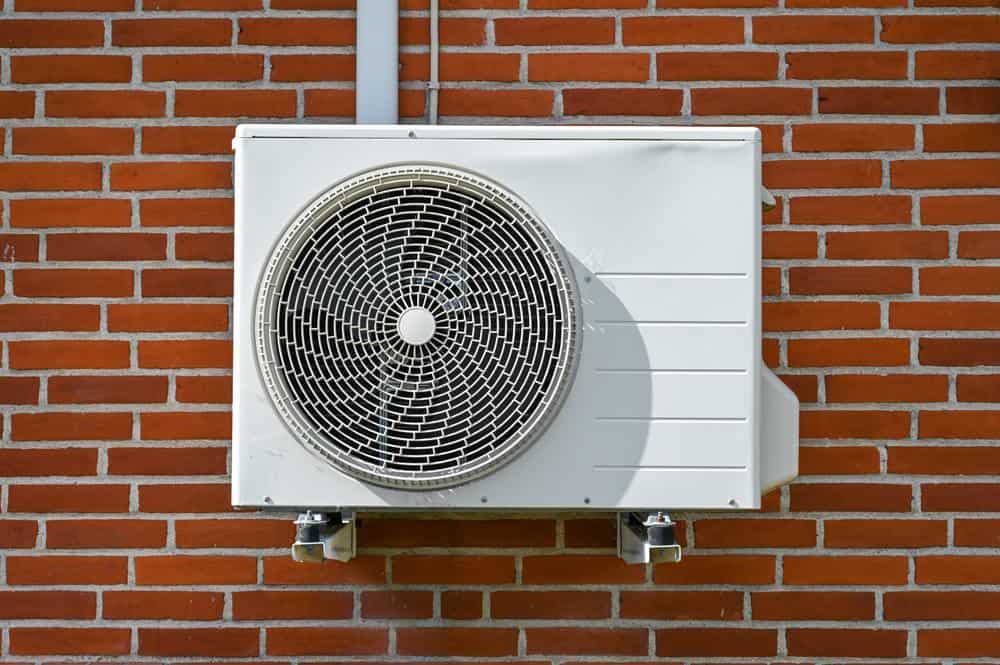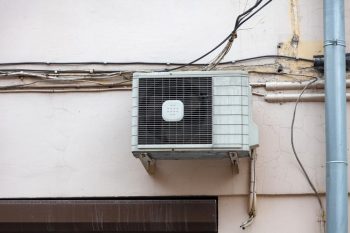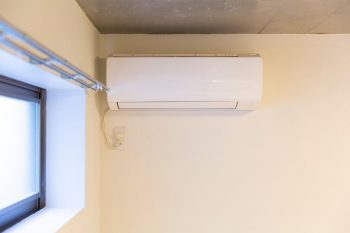
When it comes to cooling a 2800 sq ft property, the size of your air conditioning (AC) unit plays a crucial role. An appropriately sized AC unit can efficiently maintain consistent interior temperatures, keep energy costs at an optimal level, and enhance the overall comfort of your home. However, selecting a unit that’s too small or too large can lead to higher energy bills, temperature fluctuations, and increased wear and tear on the system.
The ideal size of an AC unit for a 2800 sq ft property is approximately 56,000 BTUs or around 4.67 tons, based on the general guideline of needing around 20 BTUs per square foot of living space. However, this can vary depending on factors such as insulation, ceiling height, occupancy, climate, and building usage. Therefore, it’s recommended to consult with a professional HVAC technician for a detailed cooling load calculation.
How to Determine the Ideal AC Unit Size
Air conditioning units are typically measured in tons or British Thermal Units (BTUs). Generally, you need around 20 BTUs per square foot of living space. Therefore, for a 2800 sq ft property, you’d need approximately 56,000 BTUs of cooling capacity, which is equivalent to an AC unit capacity of around 4.67 tons.
Remember, this calculation is based on general guidelines and may not be accurate for your specific property. Factors such as insulation, window types, ceiling height, and climate zone can significantly influence the ideal AC size for your home. Consequently, it’s best to consult with a professional HVAC technician who can perform a detailed cooling load calculation to determine the most suitable AC unit size for your property.
Factors to Consider When Choosing an AC Unit Size
Several factors can influence the size of the AC unit you need for your home:
- Square footage: This is the most crucial aspect, as it directly affects the cooling capacity required.
- Ceiling height: Higher ceilings mean more air to cool, which may necessitate a larger AC unit.
- Insulation: A well-insulated home retains cool air more effectively, potentially reducing the size of the AC unit needed.
- Occupancy: More people means more heat generation inside the space, which the HVAC system needs to offset.
- Climate: In hotter climates, a larger capacity unit may be necessary to maintain comfortable indoor temperatures.
- Building type and usage: The purpose for which the property is used also affects the decision about the size of the AC unit.
Consequences of Choosing an Incorrect AC Unit Size
Choosing an AC unit that is too small or too large for your property can lead to several issues:
- Inadequate cooling: An undersized AC unit will struggle to cool the entire property, leading to uneven temperatures.
- Excessive energy consumption: Both undersized and oversized AC units can lead to higher energy bills.
- Increased wear and tear: An improperly sized AC unit will experience more wear and tear due to constant cycling or running.
- Poor humidity control: An oversized AC unit may not run long enough to remove moisture from the air, leading to high humidity levels.
Energy-Efficient Options for Cooling a 2800 Sq Ft Property
To maximize energy efficiency, consider options such as air-source heat pumps, ductless mini-split systems, passive cooling techniques, smart thermostats, and energy-efficient air conditioners. These options can provide effective cooling while reducing energy consumption.
In conclusion, the right size of an AC unit for a 2800 sq ft property is critical for efficient and effective cooling. By considering the factors mentioned above and consulting with a professional HVAC technician, you can ensure optimal comfort and energy efficiency for your home.
Frequently Asked Questions
What is a BTU and why is it important in sizing an AC unit?
BTU stands for British Thermal Unit and it is a unit of heat energy. It’s used in the HVAC industry to measure the cooling capacity of air conditioning systems. One BTU is the amount of energy needed to raise the temperature of one pound of water by one degree Fahrenheit. The higher the BTU rating of an air conditioner, the more heat it can remove from a room. Therefore, it’s a crucial factor in determining the appropriate size of an AC unit for a property.
What is a ton in relation to AC units?
In the context of air conditioning systems, a ton is a unit of measurement that refers to the cooling capacity of the AC unit. One ton of cooling is equivalent to 12,000 BTUs per hour. So, if an AC unit is referred to as a ‘4-ton unit’, it means it has a cooling capacity of 48,000 BTUs per hour.
What is a cooling load calculation?
A cooling load calculation is a detailed analysis performed by HVAC professionals to determine the amount of cooling an air conditioning system needs to provide to maintain a comfortable temperature in a building. The calculation takes into account various factors like the size of the building, insulation, window types, climate, and occupancy, among others.
What is an air-source heat pump and how can it help in cooling a property?
An air-source heat pump is a system that can both heat and cool a building. It transfers heat from inside a building to the outside during the summer (cooling) and from the outside to the inside during the winter (heating). This makes it a versatile and energy-efficient option for maintaining comfortable temperatures in a property.
What is a smart thermostat and how does it contribute to energy efficiency?
A smart thermostat is a device that allows you to control the temperature of your home remotely using your smartphone or other devices. It can learn your schedule and preferences, adjusting the temperature accordingly to save energy. Some models can even provide energy usage reports, helping you understand and manage your energy consumption better.












